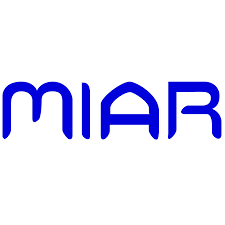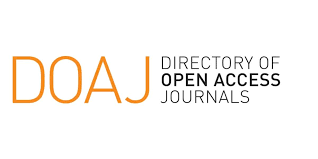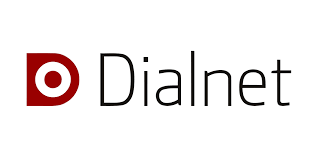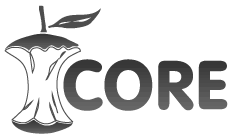Community social resistance projects: an alternative for reflection and resilience in diverse and vulnerable contexts
DOI:
https://doi.org/10.36881/ma.v4i1.1147Keywords:
resilience, comprehensiveness, life skills trainigAbstract
The study addresses the deficiency in the training of community social projects at the Universidad Autónoma Indígena de México (UAIM), Mochicahui Unit. Traditionally, the university has focused on resilience from a Western and individualistic perspective, ignoring collective resistance practices and the Yoreme worldview, which contributes to the invisibility of knowledge and the erosion of cultural identity. This approach limits students' ability to effectively address structural violence. The general objective of the research was to analyze how community social projects, from the perspective of students in the Bachelor's Degree in Community Social Psychology at UAIM, can be a methodological alternative to foster collective resilience and reflection in the face of violence. The study's methodology was phenomenological-hermeneutical. It worked with four students who participated in community resistance social projects in Yoreme communities, using semi-structured interviews and autobiographies; the analysis was thematic content. To ensure credibility and ethics, the confidentiality of the participants was maintained. The results showed that the students, being people of low socioeconomic status and Indigenous, felt vulnerable and developed resilience to face adversities. It was concluded that community social projects should be designed in collaboration with community members, focusing on real problems and developing life skills, articulating community needs with the objectives of the UAIM.
Downloads
References
Alzugaray-Ponce, C., Fuentes-Aguilar, A, & Basabe, N. (2021). Resiliencia Comunitaria: una aproximación cualitativa a las concepciones de expertos comunitarios. Rumbos TS, 16(25), 181-203. https://dx.doi.org/10.51188/rrts.num25.496
Angulo-Aguilazocho, M. S. (2022). Redes socioeducativas en la Universidad Autónoma Indígena de México. [Tesis de doctorado no publicada]. Universidad Autónoma Indígena de México UAIM.
Astete, C. (2017). Pierre Bourdieu: el poder en el campo de la educación y la pedagogía. Horizonte de la Ciencia, 7(12), 223-239. https://www.redalyc.org/journal/5709/570960868016/html/
Bandura, A. (1977). Social learning theory. Prentice Hall.
Bardin, L. (2002). El análisis de contenido. Ediciones Akal.
Becker, G. S. (1964). Human capital: A theoretical and empirical analysis, with special reference to education. Columbia University Press.
Caro-Dueñas, A. (2022). Origen y evolución jurídico-social de la Universidad Autónoma Indígena de México. [Tesis de doctorado no publicada]. Universidad Autónoma Indígena de México.
Freire, P. (1970). Pedagogy of the oppressed. Herder and Herder.
Giroux, H. A. (1983). Theory and resistance in education: A pedagogy for the opposition. Bergin & Garvey.
Guerra-García, E., Macarena-Padilla, M. y Viramontes-Olivas, A. (2021). La iniquidad territorial en la matrícula de la universidad Autónoma Indígena de México (UAIM) y las comunidades yoreme mayo. En Fernández, J. A. y Ortiz, C. (Coords). Los Pueblos Indígenas en Sinaloa. Migración, interculturalidad y saberes tradicionales (101-150). Astra Ediciones.
H. Congreso del Estado de Sinaloa. (2019, 27 de noviembre). Decreto número 340 que expide la Ley Orgánica de la Universidad Autónoma Indígena de México. https://drive.google.com/file/d/1QcHwgkyggbBfi11D5bRQ4BSeMmI3bAR4/view
Labate, H. (2023). Desarrollo de Capacidades: Tarea para la escuela. Documentos del Gobierno de la Provincia de Córdoba.
Leyva-Ayala, J. (2022). Educación superior intercultural y discapacidad: Percepciones, imaginarios y representaciones sociales en la Universidad Autónoma Indígena de México. [Tesis de doctorado no publicada]. Universidad Autónoma Indígena de México, Los Mochis - UAIM.
Martín-Baró, I. (1986). Hacia una psicología de la liberación. Boletín de Psicología, 22, 219-231. https://r.search.yahoo.com/_ylt=AwrFNhq_UbhoTMcelFUNnYlQ;_ylu=Y29sbwNiZjEEcG9zAzEEdnRpZANEMjg3NTlUM18xBHNlYwNzcg--/RV=2/RE=1756938815/RO=10/RU=https%3a%2f%2fcentrodocumentacion.psicosocial.net%2fwp-content%2fuploads%2f2002%2f01%2fmartin-baro-hacia-una-psicologia-de-la-liberacion.pdf/RK=2/RS=EVCTyQGtHzEJByBVztUzRBPK1F4-
Martínez, M. (2008). La investigación cualitativa: síntesis conceptual. Lipsi, 9(1), 123-146. https://sisbib.unmsm.edu.pe/Bvrevistas/Investigacion_Psicologia/v09_n1/pdf/a09v9n1.pdf
Mc Kay-Levy, L., Barrera-Niño, A., Skinner-Hooker, O. (2024). Empoderamiento y desarrollo social, claves para superar la pobreza. Ciencia Latina Revista Científica Multidisciplinar (en línea), 8(6). https://doi.org/10.37811/cl_rcm.v8i6.14603
Montero, M. (2004). Introducción a la psicología comunitaria: Desarrollo, conceptos y procesos. Paidós.
Montoya-Rivera, N. M. (2023). Resistencia comunitaria y mantenimiento de la esperanza a través de la organización y el liderazgo comunitario. Perspectivas para un postconflicto. [Tesis en Maestría comunitaria no publicada]. Universidad Nacional Abierta y a Distancia – UNAD Escuela de Ciencias, Sociales, Artes y Humanidades – ECSAH.
Morin, E. (1990). Introducción al pensamiento complejo. Gedisa.
Norris, F. H., Stevens, S. P., Pfefferbaum, B., Wyche, K. F., & Pfefferbaum, R. L. (2008). Community resilience as a metaphor, theory, set of capacities, and strategy for disaster readiness. American Journal of Community Psychology, 41(1-2), 127-150. https://doi.org/10.1007/s10464-007-9156-6
San Martin, J. (2002). La estructura del método fenomenológico. Universidad Nacional de Educación a Distancia. https://www2.uned.es/dpto_fim/profesores/JSM/RepositorioCV_JSM/Libros/5_21_Laestructuradelmetodofenomenologico.pdf
Tobón, S. (2008). Formación Basada en Competencias. Pensamiento complejo, diseño curricular y didáctica. Ediciones Ecoe.
Universidad Autónoma Indígena de México [UAIM]. (2024). Modelo Educativo. Los Mochis, Sinaloa. https://www.uaim.edu.mx/portal/
Ungar, M. (2011). The social ecology of resilience: A handbook of theory and practice. Springer.
Van Dijk, T. A. (1999). Texto y contexto: Exploraciones en el poder del lenguaje. Aljibe. https://www.academia.edu/10095098/Van_Dijk_Teun_Texto_y_contexto
Van Dijk, T. A. (2008). Discurso y contexto: Un enfoque sociocognitivo. Gedisa.
Vygotsky, L. S. (1978). Mind in society: The development of higher psychological processes. Harvard University Press.
Werner, E. E., & Smith, R. S. (1992). Overcoming the odds: High-risk children from birth to adulthood. Cornell University Press.
Downloads
Published
How to Cite
Issue
Section
Categories
License

This work is licensed under a Creative Commons Attribution 4.0 International License.
The content of the publications is the responsibility of the authors. The journal allows authors to maintain copyright on published articles and documents. The license used is Commons Attribution-NonCommercial International License. CC BY NC
















